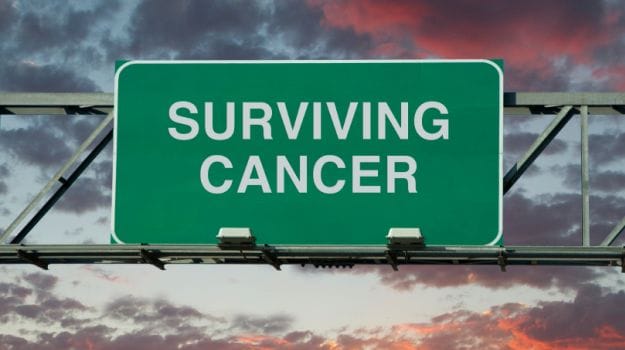A diagnosis of cancer is shocking news, but it can create a teachable moment for the patient. "Think about what changes do I need to make to improve my chances of survival and to improve my overall well-being and my ability to cope with my disease," suggests Kevin Stein, director of the American Cancer Society's behavioral research center.
Cancer patients first go through a period where rest is critical: the intensive phase of treatment such as surgery or chemotherapy. At this time, it's important to follow the advice of your oncologist and other providers of medical care, said Linda Nebeling, deputy associate director of the behavioral research program at the National Cancer Institute.
The changes that survivors need to make after treatment are mostly the common-sense steps for good health that are suggested for a variety of conditions. Many groups offer diet and exercise recommendations similar to the following, from the American Cancer Society's "Lifestyle Changes That Make a Difference," a guide for patients, and "Nutrition and Physical Activity Guidelines for Cancer Survivors."
- Get to and stay at a healthy weight.
The ACS recommends limiting high-calorie foods and drinks and getting more active. Aim to get your BMI in a healthy range.
- Be active on a regular basis.
Return to normal activities as soon as your doctor says it's okay, and exercise at least 150 minutes a week. Include at least two days of strength training. Check with your doctor before beginning any program.
The exercise that helps cancer survivors doesn't require them to become marathon runners, Nebeling says. Experts recommend starting slowly with controlled exercise such as riding a stationary bike and using hand weights, gradually building up to more cardiovascular-related gym activities. "We're training you so you don't waste and lose muscle mass," Nebeling said. Exercise helps maintain muscle strength and capacity for balance. It reduces fatigue and keeps energy levels up "so that your body stays healthy," she said.
- Eat a variety of foods.
Aim for 2 1/2 cups or more of fruits and vegetables daily. Choose whole grains. Limit red and processed meat.
Cancer survivors should enjoy what they eat and cook with foods from their local markets, said Cheryl Rock, a professor of family medicine and public health at the University of California at San Diego School of Medicine.
Healthy food can be tasty, she said. Ingredients provide zip: Instead of pepperoni on a pizza, use sun-dried tomatoes for added flavor. Instead of croutons on a salad, try roasted walnuts for crunchy satisfaction. Slivered almonds or mustard perk up fish.
Survivors can also eat healthier by adding ingredients to their regular diets: fruit on cereal or veggies added to the pasta that you order out.
- Limit alcohol consumption.
- Find a local program.(c) 2016 The Washington Post











